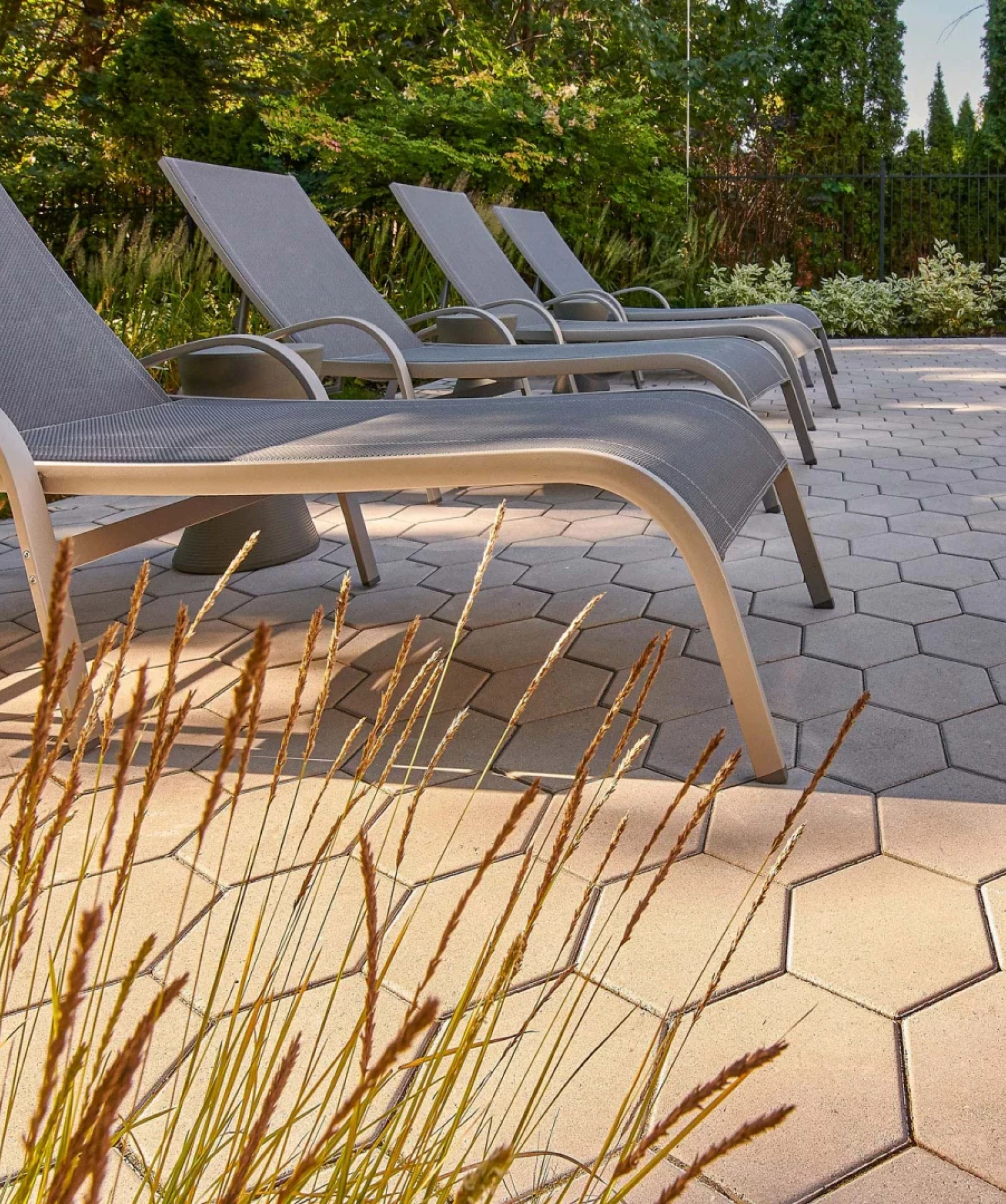When it comes to upgrading your outdoor space, few options are as versatile and visually impactful as pavers. Whether you’re designing a patio, walkway, driveway, or pool surround, choosing the right type of paver can make all the difference in both aesthetics and functionality. But with so many types of pavers available, how do you know which one suits your home, climate, and project goals best?
At Ernst Landscaping, we’ve helped countless Kentucky homeowners navigate the choices to create stunning, durable hardscapes. In this guide, we break down the most popular paver types, their pros and cons, and which might work best for your next project.
What Are Pavers?
Pavers are individual units made from materials like concrete, natural stone, brick, or porcelain, designed to create paved surfaces. They’re a popular alternative to poured concrete thanks to their flexibility in design, ease of repair, and enhanced curb appeal.
Why Kentucky Homeowners Love Pavers
Kentucky’s climate—ranging from hot, humid summers to freeze-thaw winters—demands materials that can handle seasonal extremes. Pavers are ideal for this environment because:
- They offer strong resistance to cracking compared to poured concrete
- Individual pavers can be replaced easily if damaged
- They come in endless colors, shapes, and finishes
- Their modular design allows for better drainage and soil movement flexibility
Popular Types of Pavers for Outdoor Projects
Let’s break down the most common types of pavers used in Kentucky landscaping.
Paver Comparison Chart
Paver Type | Material | Durability | Best Use | Cost Range (per sq ft) |
|---|---|---|---|---|
Concrete Pavers | Molded concrete | High | Patios, driveways, walkways | $3–$8 |
Brick Pavers | Clay or shale | Moderate–High | Traditional pathways, borders | $5–$10 |
Natural Stone Pavers | Slate, limestone, etc. | High | Luxury patios, garden paths | $10–$25 |
Porcelain Pavers | Kiln-fired ceramic | Very High | Poolsides, modern designs | $7–$15 |
Rubber Pavers | Recycled rubber | Moderate | Play areas, safety zones | $6–$11 |

A Closer Look at Each Type
Concrete Pavers
Overview: The most common and affordable option, concrete pavers are factory-made for consistency in size and shape.
Benefits:
- Budget-friendly
- Available in various textures, colors, and shapes
- Easy to install and replace
Drawbacks:
- Can fade over time without sealing
- May crack under heavy loads if improperly installed
Brick Pavers
Overview: Made from baked clay, brick pavers give a timeless, classic appearance.
Benefits:
- Charming, historic appeal
- Retains color well
- Strong load-bearing capacity
Drawbacks:
- Limited in color and shape options
- Requires proper base to avoid shifting
Natural Stone Pavers
Overview: Natural stones like flagstone, bluestone, and limestone are prized for their organic beauty and durability.
Benefits:
- Unique texture and coloration
- Long lifespan
- Great for blending with natural landscapes
Drawbacks:
- Higher upfront cost
- Irregular shapes require expert installation
Porcelain Pavers
Overview: Porcelain pavers are engineered for elegance and resistance to weather, ideal for modern design projects.
Benefits:
- Low water absorption
- Extremely durable and scratch-resistant
- Ideal for pools and sleek patios
Drawbacks:
- Requires professional installation
- More expensive than concrete or brick
Rubber Pavers
Overview: Often made from recycled tires, these pavers are eco-friendly and slip-resistant.
Benefits:
- Soft underfoot—great for playgrounds or pet zones
- Environmentally conscious
- Easy to maintain
Drawbacks:
- Not as visually refined for upscale projects
- Can degrade in extreme sunlight over time
Quick Tips for Choosing the Right Paver
Here’s how to narrow down your options depending on your goals:
Consider These Factors:
- Climate: Kentucky’s freeze-thaw cycles demand flexible materials like concrete or stone
- Budget: Concrete pavers are cost-effective for large projects
- Style preference: Brick for traditional charm, stone for elegance, porcelain for modern flair
- Functionality: Rubber pavers are perfect for kids’ areas or safety surfaces
- Maintenance level: Porcelain and natural stone offer easy cleaning and long lifespans
Advantages of Using Pavers Over Poured Concrete
Still debating between a paver patio and a poured slab? Here’s why many Kentucky homeowners choose pavers:
Benefits of Pavers (Bullet Points)
- More flexible during soil shifts, reducing cracking
- Easier repairs—just swap out damaged units
- Better drainage reduces pooling and erosion
- Aesthetically versatile with colors, patterns, and finishes
- Boosts property value with higher visual appeal
DIY vs. Hiring a Pro
While small paver projects like garden paths can be DIY-friendly, larger installations—especially patios and driveways—are best left to professionals.
Why Choose Ernst Landscaping?
- Locally trusted across Kentucky for over a decade
- Custom design consultations based on your style and needs
- Proper base prep to prevent sinking or shifting
- Access to high-quality materials and tools
- Expert craftsmanship backed by long-term warranties
Final Thoughts: Which Type of Paver Is Best for You?
Choosing between the various types of pavers depends on your space, budget, and design preferences. Each material offers unique benefits, and at Ernst Landscaping, we help guide you to the right choice with expert design advice and professional installation. Whether you’re dreaming of a rustic stone patio, a sleek porcelain pool deck, or a classic brick walkway—our team is here to bring your vision to life.
Ready to Transform Your Landscape?
Let Ernst Landscaping design a paver solution that’s both functional and stunning. We offer expert paver installation for patios, walkways, driveways, and more throughout Kentucky. Contact us today to schedule your free consultation—and let’s create an outdoor space that reflects your style and stands the test of time.





